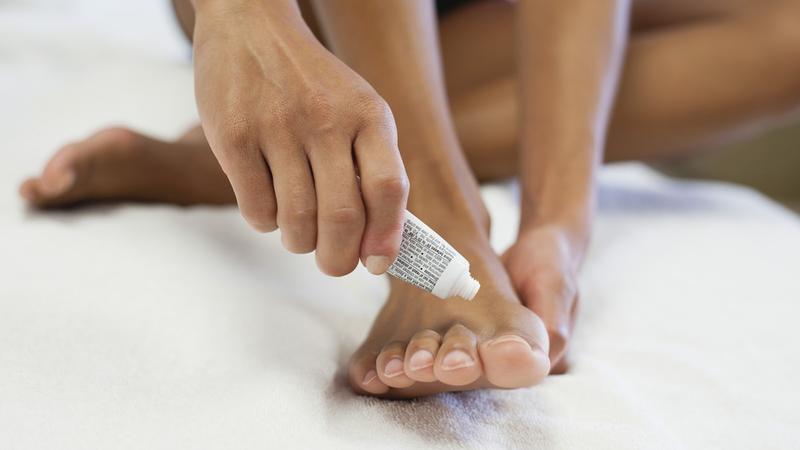Easy You Just Don't Lead Them as Much

Caused by a fungal infection, jock itch isn't usually serious, but it's certainly an uncomfortable condition. Most people dealing with jock itch experience itchy, burning skin that manifests as a red circular rash that resembles ringworm. It can also cause your skin to flake, peel or crack. Generally, it affects the groin and inner thighs, although it's possible to get jock itch on any part of the body where you have folds in your skin.
It's usually possible to treat jock itch by keeping the affected area clean and applying a topical antifungal cream. Even better, there are some steps you can take to prevent it from happening in the first place. To do that, you have to first understand what often causes the condition. Here's a look at some of the most common causes of jock itch.
Sweat is one of the leading causes of jock itch, which is why it's a common condition for athletes — the reason for the "jock" in the name. People who work outdoors or in high temperature conditions, especially those who wear particularly tight clothing or protective equipment for the groin area, are prone to the condition. Even something as simple as spending time working outdoors in your yard or garden on a hot, humid day can lead to sweating in the groin area.

Obviously, if you frequently exercise or engage in strenuous everyday activities, you can't avoid sweating, but it's important to take frequent showers if you tend to sweat in your groin and inner thigh area. Then, after every bath or shower, be sure to dry the area completely. Don't get dressed while your skin is still damp.
Other Health Problems Could Be Triggers
If sweating and damp clothing aren't significant risk factors for you, you could still be at risk due to certain health conditions that are more prone to fungal infections. If you have diabetes, for example, you are at greater risk of developing jock itch. Anyone who has a weak immune system is more susceptible to fungal infections. If you're overweight or obese, your risk increases due to the greater likelihood of excessive sweating and more areas with skin folds where moisture can collect throughout the day.

People who suffer from athlete's foot are also more prone to developing jock itch. Athlete's foot is also a fungal infection, and it can work its way up your body if you're not careful. The best way to combat jock itch if you suffer from athlete's foot is to treat the problem and practice good hygiene. Never use the same towel to dry your body that you use on your feet. You should also put on socks before getting dressed to avoid contaminating your underwear and pants.
Tight or Dirty Clothing Makes a Snug Home for Fungus
If you like to wear tight jeans and other constrictive articles of clothing, you could be setting yourself up for a case of jock itch. Tight clothing not only holds moisture close to your body, but it also irritates and chafes your skin, making it much easier for the fungus to invade and start growing. Avoid tight-fitting underwear as well.

Make sure you wash your clothes regularly, especially workout gear and other items that got sweaty when you last wore them. If you're an athlete who wears a uniform, you should wash it between each game or practice. It's also important to avoid wearing other people's clothing, especially if you don't know if the items are clean. The same rule applies to sharing any personal items, particularly towels. If you spend time in public workout areas like locker rooms, gyms or public pools, be sure to use your own towel and always wear shoes when you walk around.
Some Risk Factors Are Beyond Your Control
As you find with many health problems, all the leading causes of jock itch aren't within your control. For example, men are more likely to develop the condition than women, and teenagers and young adults are more susceptible to infections than older adults. Some people also have health conditions that cause frequent, heavy sweating, even when they aren't exerting themselves, making it impossible to shower away germs as frequently as necessary.

Some medications can also cause immunity imbalances that increase your risk of getting a fungal infection. These include anti-malarial drugs, some blood pressure medications and lithium. Stress and smoking also make you more likely to develop jock itch. (Keep in mind that smoking is a risk factor you can control by quitting.)
Sources:
https://www.mayoclinic.org/diseases-conditions/jock-itch/symptoms-causes/syc-20353807
https://www.mayoclinic.org/diseases-conditions/jock-itch/diagnosis-treatment/drc-20353812
https://www.merckmanuals.com/home/skin-disorders/fungal-skin-infections/jock-itch-tinea-cruris
Source: https://www.symptomfind.com/healthy-living/leading-causes-jock-itch?utm_content=params%3Ao%3D740013%26ad%3DdirN%26qo%3DserpIndex&ueid=b8c28667-6c34-4b04-810d-1b6def2002b5
